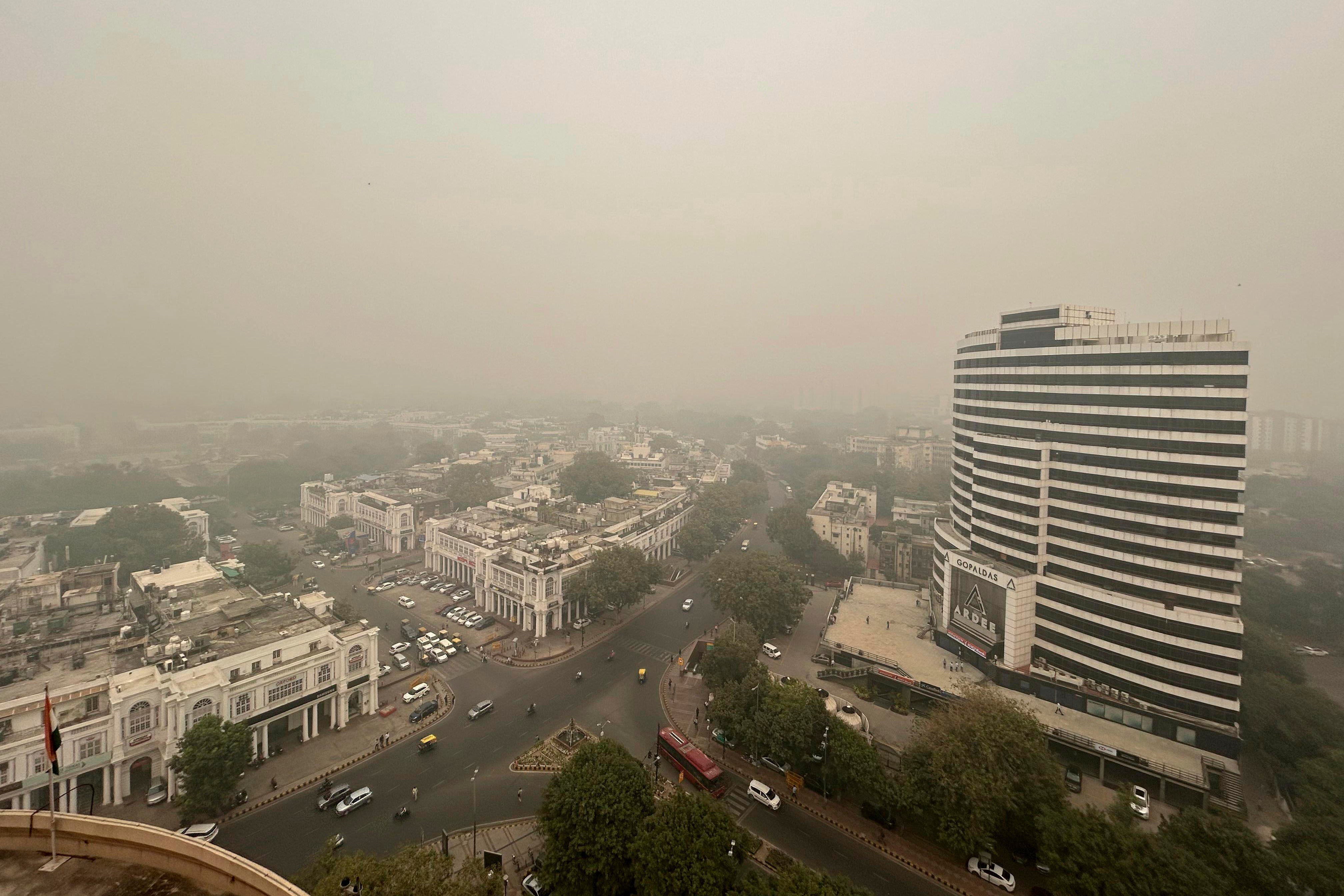Delhi’s air quality ‘severe’ as breathing air akin to smoking ‘25-30 cigarettes a day’
Air crisis and pollution level in Delhi are here to stay for the next two to three weeks, officials warn

Your support helps us to tell the story
From reproductive rights to climate change to Big Tech, The Independent is on the ground when the story is developing. Whether it's investigating the financials of Elon Musk's pro-Trump PAC or producing our latest documentary, 'The A Word', which shines a light on the American women fighting for reproductive rights, we know how important it is to parse out the facts from the messaging.
At such a critical moment in US history, we need reporters on the ground. Your donation allows us to keep sending journalists to speak to both sides of the story.
The Independent is trusted by Americans across the entire political spectrum. And unlike many other quality news outlets, we choose not to lock Americans out of our reporting and analysis with paywalls. We believe quality journalism should be available to everyone, paid for by those who can afford it.
Your support makes all the difference.India’s capital New Delhi continued to be covered in toxic haze on Saturday despite relatively better wind conditions overnight as the concentration of poisonous PM 2.5 was recorded more than 80 times over the prescribed healthy limit by the World Health Organization.
The air quality index, which has annually shrouded cities in northern India specifically Delhi in toxic haze, deteriorated yet again this week as the AQI value touched 554 on Saturday after spiking sharply on Thursday and Friday, Swiss air quality group IQ Air showed.
On Friday, the air quality in Delhi dropped to the highest “severe category” with the PM 2.5 value crossing the 500-mark, 100 times more than the limit recommended by the WHO.
Authorities resorted to shutting schools in all parts of the Delhi-NCR for Friday and Saturday after the AQI hit severe category. PM 2.5 is a fine particulate matter that can choke the respiratory system and cause severe health problems affecting the lungs and heart. Officials have also banned buses to restrict heavy traffic and called for a ban on construction activities as part of its temporary control measures.
Northern India, especially Delhi, falls prey to its geographical disadvantage every year during the onset of winter and suffers from an air apocalypse which has shortened the life span of its millions of citizens.
The top factors include year-round pollution, industrial pollution, stagnant wind conditions and smog emanating from its wheat basket states Punjab and Haryana where farmers resort to burning rice straws in order to clear the waste on their farmlands and prepare it for the next cultivation season.
These combine to result in trapping of extremely poisonous air in the atmosphere which causes breathing difficulties, combined with headaches and itchy eyes for the residents.
According to the 2023 Air Quality Life Index [AQLI] report from the University of Chicago’s Energy Policy Institute, air pollution reduces the life expectancy of Delhi’s residents by approximately 11.9 years.
“This pollution level is here to stay for the next two to three weeks, aggravated by the incidents of stubble burning, slow wind speed and cooling temperatures,” Ashwani Kumar, chairperson of the Delhi Pollution Control Committee said.
The worsening pollution is also affecting unborn children, a top doctor in the Indian capital said, adding that all age groups are adversely affected by air pollution. Its impact is akin to smoking about 25-30 cigarettes a day, Dr Arvind Kumar, a senior lung specialist at Medanta Hospital said.
“You might wonder how an unborn child is affected because that child is not breathing. When the child’s mother is breathing, the toxins go to her lungs; through the lungs, they go into the blood; and through the placenta, they reach the child, and the foetus, and cause damage,” Dr Kumar said.
Dr Kumar added that when the child is born, they start breathing the same air.
India is also hosting the international cricket World Cup for men, bringing more attention to the situation as other cities like Mumbai are also reeling from the air crisis. Sri Lanka cancelled their training session in Delhi on Saturday afternoon following advice from team doctors, ESPN reported. On Friday, Bangladesh also cancelled their training session due to the pollution crisis.
Delhi is hosting a World Cup match on Monday between Bangladesh and Sri Lanka.
Join our commenting forum
Join thought-provoking conversations, follow other Independent readers and see their replies
Comments